Tenant’s Guide to Renting a Home or Residential Property
Avoid the frustrations of finding a rental property and moving in, only to be caught by surprise by problems with the property itself, followed by a poor response to your maintenance request. Fortunately, a poorly negotiated lease, a complicated process of making rent payments, or lack of communication with a challenging landlord are all avoidable.
Doing your homework, asking the right questions, and making some important observations prior to signing a lease can set you up for a positive leasing experience in a residential rental property. There’s no place like home—when you’ve found the right home!
Features to Look for in a Rental Property
When you’re in the market for a new home or residential rental property, to help you find the best fit, look for the following:
- A well-maintained property
- A property that is move-in ready and has high standards of cleanliness
- A safe environment where you feel secure
- A property with outdoor space to enjoy the sunshine and fresh air
- A property with a smooth leasing process
- A property with an easy set up for making rent payments
- A well-managed property
- A place where quality repairs are completed in a reasonable timeframe
- A property where you can enjoy your home life
- A property that meets the needs of your family, including one located in the best school system for your children
- A property that is in proximity to work, grocery stores, gym, and recreational activities you enjoy
- A property that has the right amount of bedrooms and bathrooms for your family
- A property in your price range
- A property you have toured and you have a good gut sense about
- A place with either a garage or ample parking for your vehicle
- A place that feels like home
- A property with a central air conditioning and heating unit that works well and is properly maintained
- A property with adequate storage and closet space
Questions to Ask Your Landlord or Property Manager
As a tenant, it’s important to have a good working relationship with your landlord or property management company. Both parties should be courteous, cooperative, and respectful when communicating. The relationship begins when you tour properties and get to know your new landlord. Pay attention to subtle things during your interaction. If there is not a tone of mutual respect, you may want to keep looking. Here are some questions to ask your landlord or property manager:
- How much is rent?
- How much is the security deposit?
- What date is rent due?
- Where do I pay my rent?
- What is the lease term?
- Are pets allowed on the property, and if so, how much is the pet deposit?
- How do I initiate the process if a maintenance need pops up during normal business hours? What about after hours and on the weekend?
- Is there an in-unit washer and dryer or a laundromat in proximity to the property?
Note: When meeting with a prospective landlord, take the time to ask all your questions, and realize the way the person responds is a good indication of how they will respond long-term.
Red Flags to Watch Out for Before Signing a Lease
- Watch out for landlords who make you feel pressured in any way to sign a lease.
- Resist the temptation to sign a lease if you’ve only seen pictures of the property. Be sure to tour the property before signing a lease.
- Never sign a lease without reading it thoroughly.
- Watch out for overestimating what you can comfortably afford and putting a strain on your finances as a result. Learn to live within your means by spending below 30% of your monthly income on rent.
- Beware of rental rates that could increase without notice. Avoid surprise rental rate increases by asking the owner if there will be any changes in your rental rate during your lease period. Whatever the answer is, get it in writing.
- Don’t assume anything when signing a lease. Ask detailed questions, and get everything in writing. Find out what is included in the lease agreement and what isn’t. Avoid misunderstandings about who pays for what by asking in advance about lawn care, trash pick-up, utilities, and what appliances are included in the agreement.
- Sidestep the idea of moving into a neighborhood you have not taken the time to visit several times, including at night and on the weekend. Instead, learn about the neighborhood where you desire to rent. Talk with potential neighbors. Take a walk in the neighborhood. Get a feel for the safety of the area. And check with the police department about the crime rate in the area to verify future safety.
- When renting a home or residential property, be careful about omitting renter’s insurance. For a minimal monthly fee you can relax, knowing your possessions are covered should a fire or flood occur. Coverage includes fire, storms, wind, hail, lightning, a frozen plumbing system, the weight of ice, snow, or sleet, and losses from non-weather items like theft and vandalism.
At McGraw Property Management, we know you need a landlord you can trust. The problem is that the process of finding the right home with the right landlord can be a time-consuming hassle, making you feel stressed or anxious. We believe it should be simple to find and rent the right home for you and your family. We know how frustrating it can be to work with a challenging landlord, which is why we’ve helped hundreds of tenants find a home to rent while properly managing their lease agreement.
There’s no need to waste valuable time trying to find the right home and a good landlord. Instead, get a property management service you can trust, tour some options, and enjoy your renting experience in a suitable piece of Tulsa real estate. Simply call McGraw Property Management and tell us what you’re looking for in a home, and we’ll get right on it. In the meantime, see our list of properties available for rent.
Share this post






